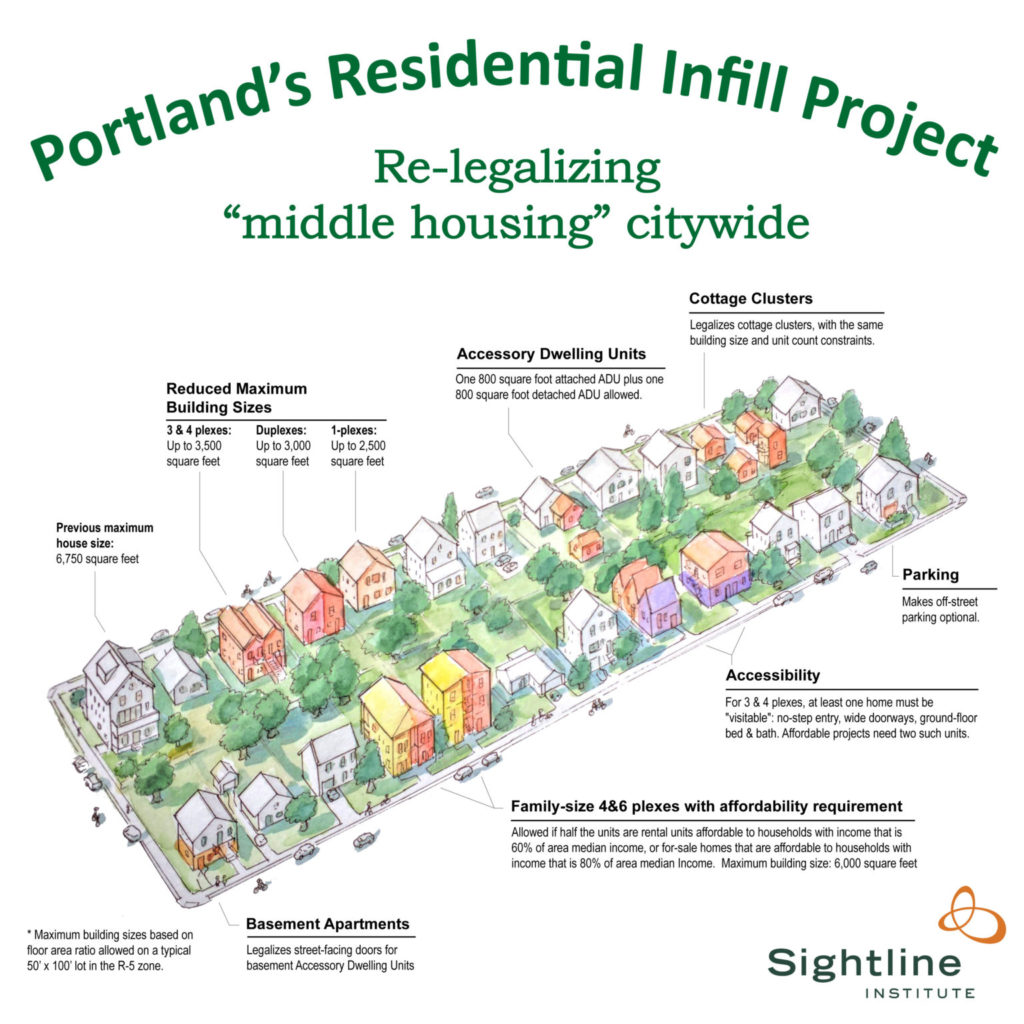By Michael Andersen, Sightline Institute, August 11, 2020
“Portland’s city council set a new bar for North American housing reform [on August 12th] by legalizing up to four homes on almost any residential lot.
“Portland’s new rules will also offer a ‘deeper affordability’ option: four to six homes on any lot if at least half are available to low-income Portlanders at regulated, affordable prices. The measure will make it viable for nonprofits to intersperse below-market housing anywhere in the city for the first time in a century.
“And among other things it will remove all parking mandates from three quarters of the city’s residential land, combining with a recent reform of apartment zones to essentially make home driveways optional citywide for the first time since 1973.
“It’s the most pro-housing reform to low-density zones in US history.
“The ‘Residential Infill Project,’ as it’s known, melds ideas pioneered recently by Minneapolis and Austin and goes well beyond the requirements of a state law Oregon passed last year.

“Policies like this serve as a sort of force multiplier for nonprofits that are, like Habitat for Humanity, already developing modest homes at below-market prices.
“Just as importantly, it makes it feasible for builders like Habitat to gradually scatter such projects through all Portland neighborhoods. It lifts a de-facto ban on new affordable housing from much of the city.
“In the last two years, the Democratic Party has rapidly come around to the position that a diversity of housing types and prices in every neighborhood is good. Its presidential candidate’s platform reflects this: Joe Biden says the federal government should withhold various grants from cities that don’t take steps toward the standard Portland is about to set.”
Read the full article here.
In Bloomberg CityLab, Laura Bliss reported:
“Portland Mayor Ted Wheeler praised the new upzoning law as a response to the city’s disparities, past and present, if not necessarily a complete one. City analyses have found that a few of Portland’s low-income neighborhoods could face slightly greater housing pressure under the new plan. That was one reason that outgoing commissioner Amanda Fritz said that she opposed it at Wednesday’s hearing, calling hers, ‘the saddest vote I have ever cast on this council.’ ”
Read Laura Bliss’s coverage of Portland’s housing reform here.

